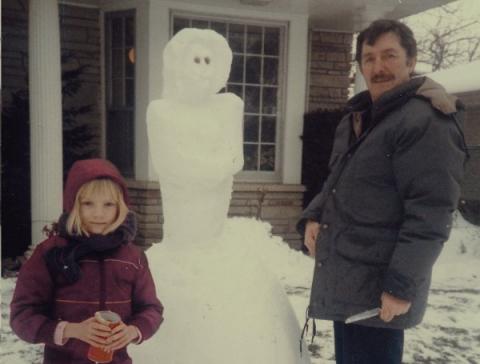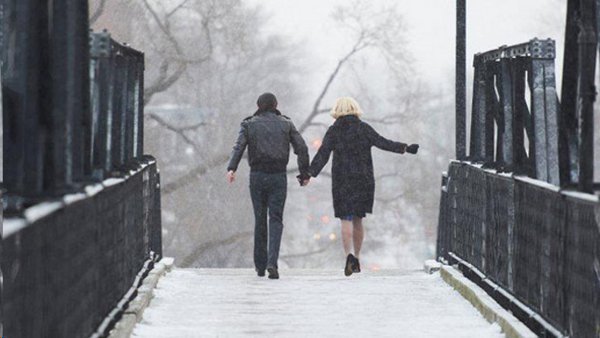Documentary ‘Stories We Tell’ Is a Wonderful Meditation on Family and Memories

“When you’re in the middle of a story, it isn’t a story at all…Like a house in a whirlwind, or a boat crushed by the icebergs, swept over the rapids, and all aboard are powerless to stop it. It’s only afterwards that it becomes anything like a story at all, when you’re telling it to yourself or someone else.”
Stories We Tell, a new documentary by filmmaker Sarah Atwood, opens with this quote offered by her father, Michael, whose writings serve as the film’s narration. What follows is a methodical investigation into the life of one woman, her mother, from the perspectives of an entire family. Through their observations and experiences, we are presented with a fractured image of a dynamic personality, loved by all but known by few: Diane.
The scope of Stories We Tell is small. The players in the film are almost entirely family members, and the topic never changes: “What do you remember about Mom?”
“Who f***ing cares’ about our family?” Sarah’s sister, Joanna, asks early on. Indeed, why should we, the general viewing public, care about this seemingly normal, albeit eccentric, family? But Stories We Tell isn’t a movie about one family. It’s a film about how we remember and how we interact with the memories that we share. It’s about how time shapes and changes the past, and how we only think we remember the way things really were.
Throughout the first half of the film, we gather facts and feelings about mother, wife, and actor, Diane. We learn that she met her husband after seeing him in a play. We learn that she was carefree and outgoing, whereas Michael was calm and introverted. We learn that she pursued her dreams, and Michael did not. And we learn that she was unhappy, and he overwhelmed.
After hearing from each party, a sense of foreboding starts to creep in through their words, highlighted expertly by Atwood’s use of home movies and uncomfortable shots of her silent family members. We discover Diane died of cancer, just four to five weeks after being diagnosed.

Up to this point, everyone’s recollections paint a cohesive portrait of Diane. But from here on, the film turns into a whodunit, and instead of solving a murder, Sarah seeks to find the identity of her biological father. It’s a secret that Diane kept with her to the grave and wasn’t unearthed until years later
This quest, Sarah says towards the end of the film, is not about a need to find her father. Rather, it’s about her desire to understand her life completely: “I’m interested in the way we tell stories about our lives. About the fact that the truth about the past is often ephemeral and difficult to pin down. And many of our stories, when we don’t take the proper time to do research about our pasts, which is almost always the case, end up with shifts and fictions in them, mostly unintended.”
She suggests that when we tell stories about our lives, we are doing just that. We are inventing events and facts that, although based in reality, are merely placeholders in our minds of memories undocumented. But, as she does in much of the documentary, Sarah offers a counterpoint in the way of her father.
“My dear Sarah, when you make a documentary about your own discovery of a new father, are you doing so to avoid your own deeper concerns about its real impact on you? Is that why you describe it as a search for the vagaries of truth and the unreliability of memory, rather than a search for a father?”
Using herself as an example, she proves that the truth can always be skewed, even in one’s own mind.
Stories We Tell is a wonderful meditation on family and memory, exploring how we approach our past and how we let it affect our future. Sarah Atwood guides the viewer through her family’s history, showing us how hard it is to define a life, and how contradictory that definition can be.
Author Bio:
Sam Chapin is a contributing writer at Highbrow Magazine.































































































































































































































































































































